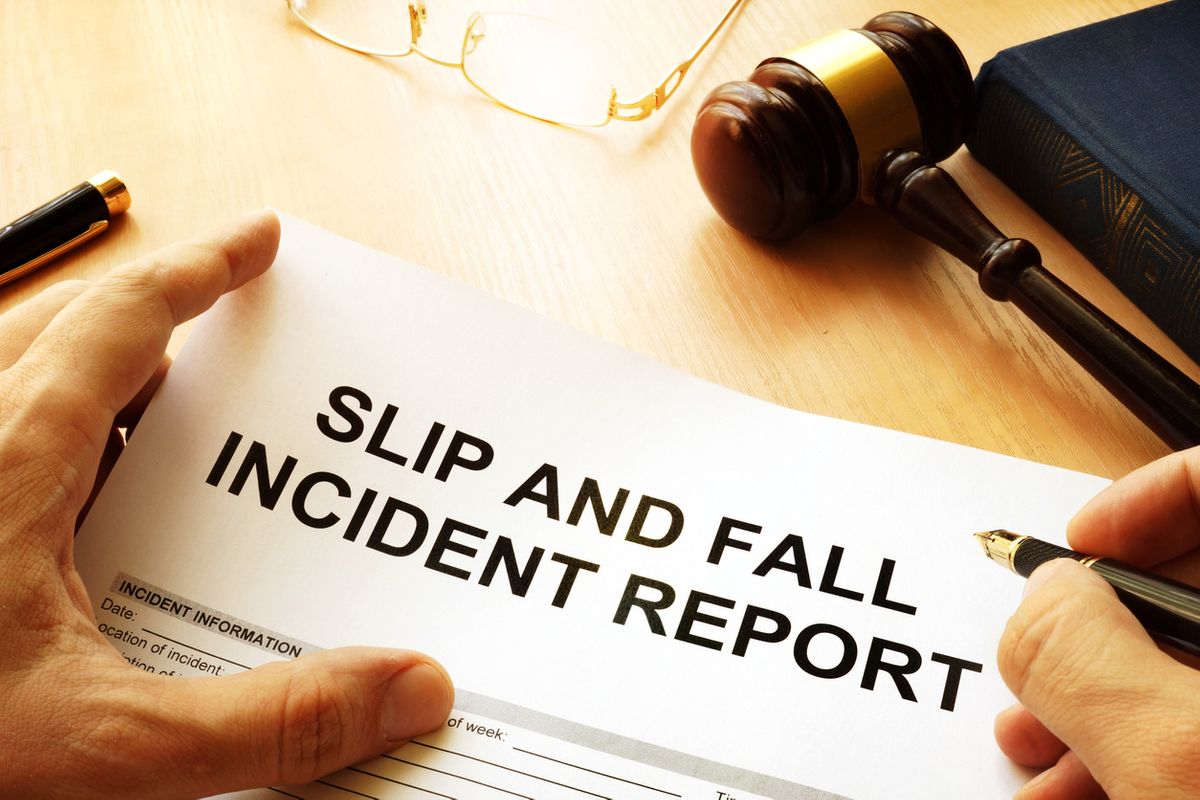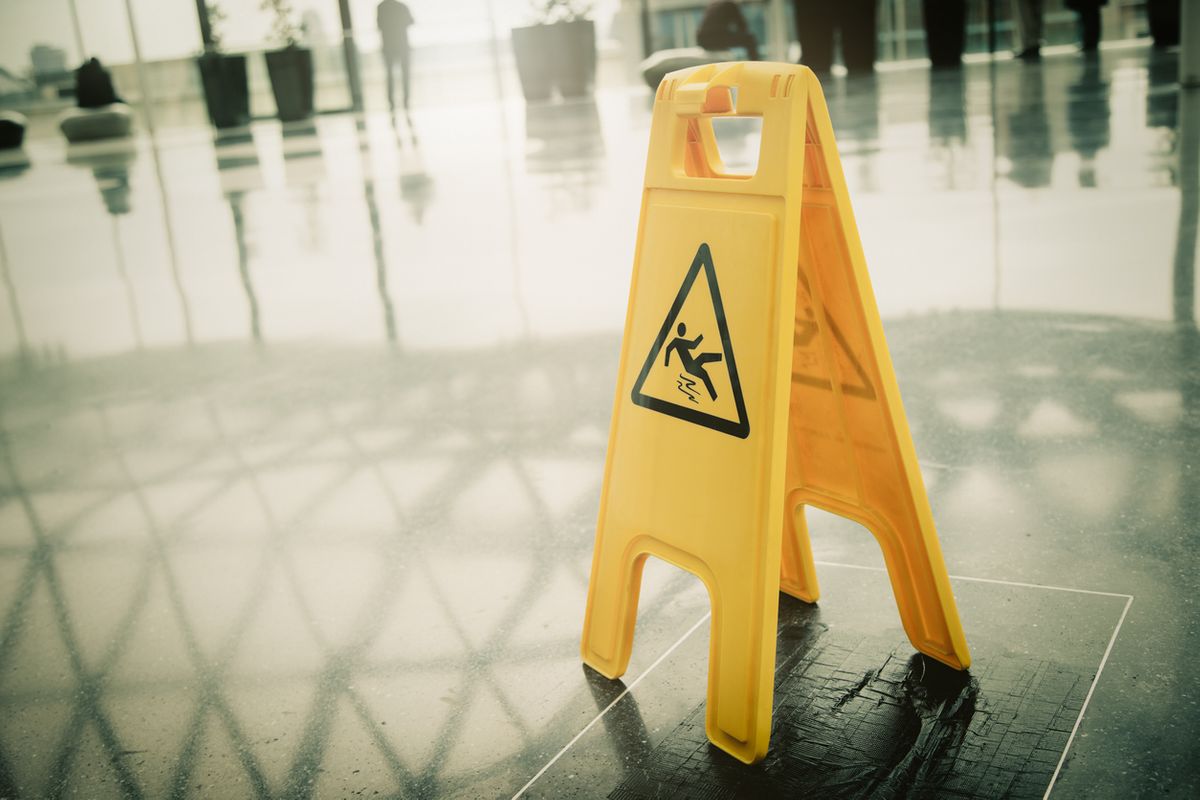Slip and fall accidents occur with frequency, in many types of settings. Injuries from a slip and fall can be severe. They can range from bruises and broken bones to serious head trauma, spinal injuries, or even death. Even people who are healthy and fit may have to deal with the unexpected pain and anxiety caused by serious injury and resulting financial difficulties. If you're suffering from catastrophic injuries, and the resulting medical bills and income loss from being unable to work, you need the help of a catastrophic injury attorney.
Perhaps you're unfamiliar with the details of slip and fall injury cases. Maybe you're unsure if you or a friend or relative is getting fair compensation for injuries incurred in a slip and fall accident. Or what conditions are necessary to file a slip and fall lawsuit.
That's why we've prepared the following outline which includes some statistics related to the significant problem of slip and fall injuries across the US and differences in laws regarding slip and fall lawsuits in the eastern states we serve, PA, NJ, DE, MD, D.C. and NY. We've also included some tips that can help you avoid becoming a slip and fall victim, and what to do if you should unfortunately suffer serious injury from a slip and fall caused by the negligence of another.
What is a Slip and Fall Case?
A lawsuit filed to recover damages from slip and fall injuries that occurred as a result of the negligence of another, (often, though not always, the property owner), is called a slip and fall case. To prove negligence, the plaintiff - the person who was injured and is filing the lawsuit - must prove four points:
- That the property owner had a duty to provide a safe environment for the injured person. Generally if the property owner invited the person who was injured onto the property or the property is open to the public, that's the case.
- That the property owner breached their duty by performing an action that created an unsafe condition or failing to take action to fix an unsafe condition of which they were or should have been aware of.
- That the property owner's breach caused the plaintiff to slip and fall. The plaintiff must show that their slip and fall was the result of the property owner's act or omission and not the result of some other condition or happening.
- That the plaintiff suffered actual damages as a direct result of the slip and fall - like catastrophic physical, emotional, or financial harm.
Damages for which the injured plaintiff may receive compensation, if the defendant is proven negligent, include:
- Medical expenses, including physical therapy or rehabilitation.
- Wages lost due to the injuries resulting from negligence.
- Expenses for counseling.
- Damages to cover pain and suffering.
An experienced personal injury attorney can help you determine whether you have an actionable slip and fall claim. Since most slip and fall cases are settled before they go to trial, filing a lawsuit doesn't necessarily mean you must appear in court.
Types of Slip and Fall Cases
Slip and fall injuries, as opposed to trip and fall injuries (In a trip and fall accident, an uneven floor or obstacle causes the fall.), can be incurred as a result of a number of types of hazards. Common types of slip and fall cases include the following.
The injured person slipped and fell because:
- Water leaked from a refrigerator, cooler, or another source such as condensation, tracked-in snow/ice or mopping, which resulted in the collection of water on a floor.
- Debris or another type of substance was left on the floor, making it slippery.
- Warnings signs were not posted to alert visitors of a substance on the floor. (This includes recently mopped surfaces.)
- A substance was not cleaned from the floor in a timely manner. (Or snow and ice from a parking area or sidewalk.)
In a slip and fall accident, something about the floor surface caused the friction force between the victim's foot and the floor to be too low to maintain footing. Other conditions, in addition to liquid or debris on the floor, can contribute to slip and fall occurrence, like lack of maintenance of surfaces, loose mats or floorboards. In a slip and fall accident, the victim often falls backward.
Slip and Fall Statistics in the United States
According to the National Floor Safety Institute site, slips and falls account for over 1 million hospital visits per year.
Additionally, the site notes that:
- 22% of slip/fall incidents resulted in more than 31 days away from work (US Bureau of Labor Statistics).
- Compensation and medical costs associated with employee slip/fall accidents is approximately $70 billion annually (National Safety Council Injury Facts ).
The Centers for Disease Control and Prevention says that falls lead to nearly half of traumatic brain injury (TBI)-related hospitalizations.
Slip and falls happen in all types of workplaces, public buildings, restaurants, retail establishments. Schools, hospitals, nursing homes, fitness centers, anyplace people visit, including private homes, when guests are invited, are sites where slips and falls take place.
Slips and falls trigger lawsuits in every state in the US. But the legal details applying to slip and fall cases differs a bit from state to state.
Slip and Fall Laws in East Coast States
Here are some guidelines regarding laws governing slip and fall cases in some prominent eastern states:
We represent slip and fall victims in all of these states, plus D.C. You can contact our personal injury attorneys in each with the confidence we have the experience you need.
How to Avoid Slip and Fall Accidents
Being fully aware of one's surroundings is the best way to avoid a slip and fall injury. Whether at work, in public, or at home, look before you step.
If you're responsible for an area, be proactive. Note clutter, spills, damaged flooring materials, anything that could present a hazard. Clean up spills, remove debris, address damage before a slip and fall accident happens to you or to someone else.
Still have questions about slip and fall accidents? Think you may have a case but need expert advice? Get in touch with a personal injury attorney.
The personal injury lawyers of The THE IGWE FIRM serve slip and fall victims in PA, NJ, DE, MD, D.C. and NY. Contact us. We can provide general information or discuss your case. If we agree to represent you, we will do whatever possible to fight for your right to fair compensation.


